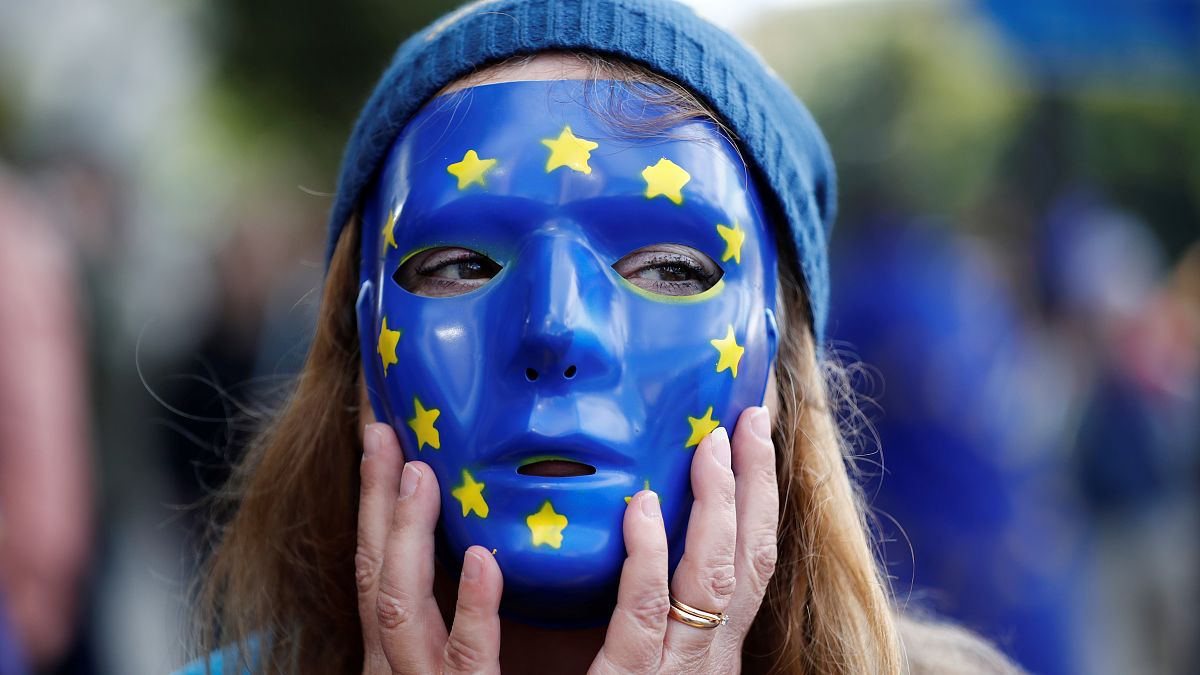EU citizens living in the UK dismiss government assurances over their rights in the event of a no-deal Brexit.
This article published on August 27 has been updated.
People from other European Union countries now living in the United Kingdom have been alarmed at government plans to end freedom of movement immediately if there’s a no-deal Brexit. (NB: The government subsequently backtracked on its plan following warnings of possible legal challenges, but many questions remain).
Despite official assurances that EU residents will be able to stay, the main citizens’ rights campaign group has told Euronews that many will be put at immediate risk if the UK leaves the EU without a deal at the end of October.
“The government in place is effectively very reckless because these (plans) will actually have a very direct effect on European nationals living in the UK at present,” Patricia Connell from The3million told Good Morning Europe.
Following a flurry of media reports earlier this week that the UK was hardening its stance, the government confirmed that “freedom of movement as it currently stands will end on 31 October when the UK leaves the EU”.
A Home Office (interior ministry) statement said there would be no changes to the deadline for applying to the EU Settlement Scheme, the registration process for European residents seeking permanent residency. As long as they are living in the UK by the scheduled departure date, EU citizens have until at least 31 December 2020 to apply.
The government says more than one million people have already been granted settled status. However, the majority of EU nationals living in the UK – an estimated further 2.6 million – have yet to apply.
A government “media factsheet” released this week and designed to reassure European nationals, criticised “inaccurate reporting” suggesting that EU residents in the UK would be left in “legal limbo”.
It goes on to state that come the end of free movement, even those who have yet to apply “will still have the same entitlements to work, benefits and services and will be able to prove these in the same way as they do now”.
Read more:
What would a no-deal Brexit mean for EU and UK citizens' rights?
Britons living in EU 'very worried' about end of free movement in no-deal Brexit
But campaigners say that the likes of employers, banks and the health service may find it hard to distinguish Europeans who are entitled to work or benefit from services, from those who are not.
“What it means in reality is that, from 1 November should we have a no-deal Brexit, nobody will be able to identify the people who have actually arrived before 1 November, and those that have actually arrived after 1 November, and this is why we are seeing at the moment a rush of people trying to register, because they know that it will be very difficult for anyone to make the distinctions between the two,” said Patricia Connell.
“It’s all very well saying ‘oh but you’ve got until the end of December 2020 to register’; in reality, it will have an effect from 1 November should we have a no-deal Brexit.”
Some EU residents have taken to social media to complain that high demand was slowing access to the online application form. A lack of clarity over the rules has sparked panic among some Poles living in the UK, according to Jakub Krupa of the Polish Press Agency.
Some Europeans in the UK have said they fear leaving the country in case they are not allowed back in. However, no-one abroad on Brexit day who is eligible for settled status will be barred from re-entering the UK in the event of no-deal, the government says in its statement.
Under the Brexit deal negotiated by Theresa May’s government and approved by the other 27 EU countries, freedom of movement would have continued under a planned transition period until December 2020.
However, unless the agreement is ratified the terms will not apply. Boris Johnson’s new government and the EU are at loggerheads over the deal, over the Irish backstop – bringing the prospect of a no-deal Brexit ever closer.
At the time of writing, no-deal advice to EU citizens in the UK and to Britons living in the EU, dating from Theresa May’s time in office, is still available on the government website.
Read more:
Brexit delay prolongs 'crippling' limbo for EU and UK expats
No-deal Brexit: everything you need to know
Brexit Guide: where are we now?
